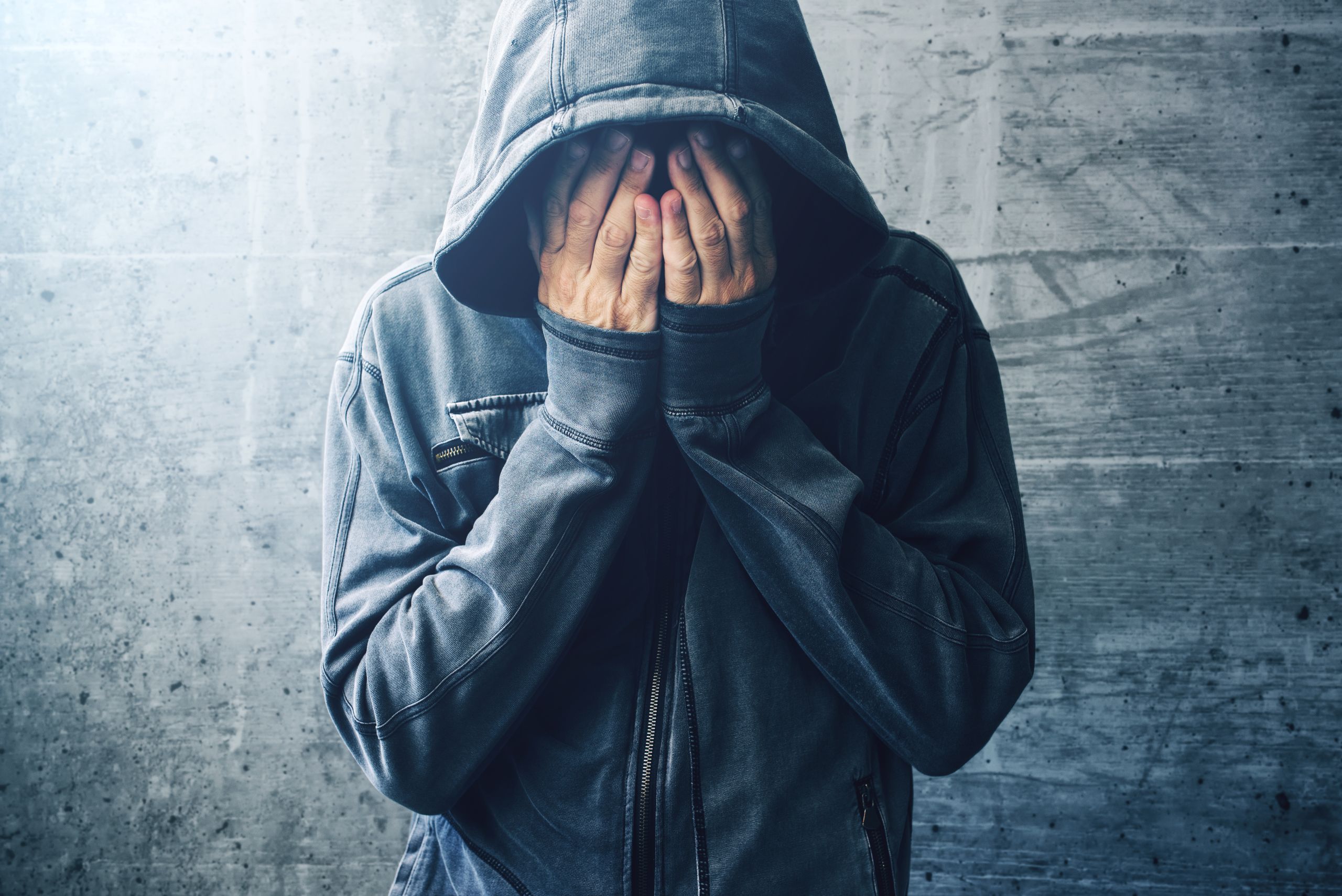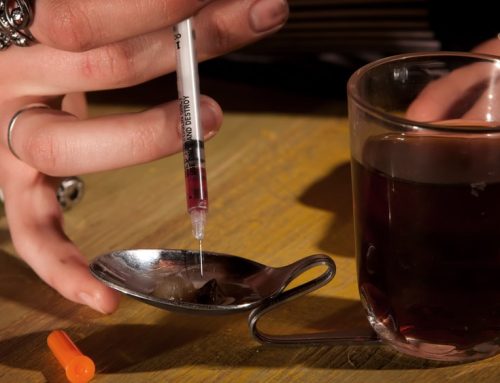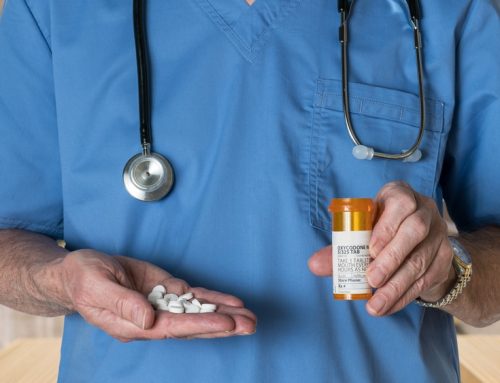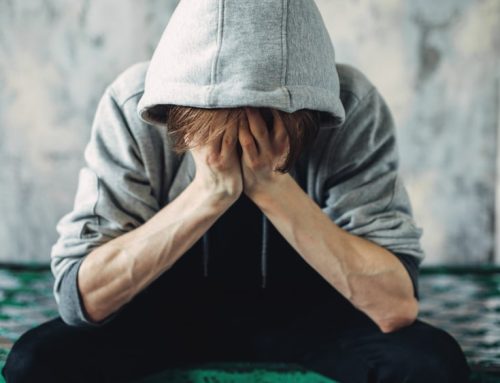
By now, you may have heard some of the media buzz about a concerning new substance of abuse being called ‘gas station heroin’. This North Jersey Recovery Center article takes a look at concerns about this new drug and its legal status.
What’s Gas Station Heroin?
As America’s controlled substance laws try to keep pace, it seems like new drugs of abuse are invented every 5-6 months or so to get around drug prohibitions designed to protect public health. One of the latest drugs in this category to appear is being called gas station heroin. It is actually a chemical called tianeptine.
Tianeptine is actually classified as an atypical tricyclic antidepressant drug. It is NOT an FDA-approved medication. It is banned for use as a prescription medication in many countries due to its concerning side effects. Some of the other slang terms or brand names gas station heroin is sold under include ZaZa, TD Red, Tianna Red, Neptune’s Fix Elixir, and Pegasus.
States where gas station heroin is already illegal include:
- Alabama
- Michigan
- Minnesota
- Florida
- Georgia
- Indiana
- Ohio
- Kentucky
- Mississippi
- Minnesota
What Are The Effects of Gas Station Heroin?
Tianeptine is called “gas station heroin” because it is a non-FDA-approved antidepressant that has some opioid agonist effects. This means it interacts with the brain’s opiate receptors to create similar effects to opioid-controlled substances. However, tianeptine is not a conventional opioid and it is not manufactured in legal, pharmaceutical laboratories, so its effects, potency, and purity can be unpredictable. This makes tianeptine and all other so-called “gas station drugs” particularly dangerous.
Some of the effects of gas station heroin use include:
- Agitation
- Drowsiness
- Confusion
- Sweating
- Rapid heartbeat
- Slowed/stopped breathing
- Coma
- Death
Where Do Drugs Like Gas Station Heroin Come From?
Sometimes called ‘designer drugs’, they usually surface in one of two places, either from clandestine labs run by organized crime or gangs or overseas operations. One of the best-known is a drug known as bath salts or “monkey dust” which began this way, being packaged for resale in gas stations and convenience stores.
Bath salts are, in fact, synthetic cathinones designed to mimic the effects of the naturally occurring active ingredient in the Middle Eastern drug khat. Sooner or later the DEA and law enforcement catch up with these drugs, but often not before they’ve done a great deal of damage, unfortunately.
Other examples of drugs which began as legal “supplements” or other products include:
- GHB: Originally sold as a “bodybuilding supplement” in the 1980s.
- Delta 8/Synthetic THC: Products sold as marijuana substitutes.
- Bath Salts: Synthetic cathinone compounds.
- Spice: Sold as “incense” or “herbal smoking blends”
How Are Drugs Like This Legal?
Chemicals and drugs like gas station heroin (tianeptine) are usually able to be sold legally (for a while) by using one of two legal loopholes. They are often sold as “adulterated dietary supplements”, which means other potentially toxic substances may also be in the mix. The other common loophole used is to label them as “not for human consumption”.
For example, synthetic cathinone crystals are/were sold as “bath salts” or spice or synthetic THC is sold as “incense”. This is of course done with a wink and a nod, with the expectation that the consumer knows how to use the drug to get the desired effect, even if that use isn’t explicitly spelled out in the package labeling. Some will even go as far as to put a warning label on the packaging telling people NOT to smoke or snort the substance when that is the intent all along.
Drugs like spice and gas station heroin manage to stay legal for a time by:
- Being sold as “adulterated dietary supplements”
- Moving from state to state to stay ahead of changing laws.
- Labeled as “not for human consumption” to skirt requirements for non-toxicity etc.
- Changing the formulation just enough to make it technically legal again.
Just Because A Drug Is Technically Legal Does Not Make It Safe
Drugs like gas station heroin are created and marketed through legal loopholes, as explained above. Gas station heroin is already illegal in 10 states and federal law should soon catch up with it. But it is very important to understand that simply because the law has not yet caught up with a drug in this category, that does not make it safe.
Even FDA-approved prescription and over-the-counter drugs can be addictive or have dangerous side effects. The difference is, when the FDA approves a drug, you at least know that human trials have been done and there is scientific research into both the effectiveness of the drug to treat certain conditions and its relative safety when used as directed/prescribed.
A drug like gas station heroin has not undergone this type of research or vetting. Not only that, but it is not being manufactured by legal, pharmaceutical laboratories. That means you have no way of knowing what you are getting or how pure the product is.
What Is Being Done About Gas Station Heroin?
The FDA and DEA are well aware of the existence of these products containing tianeptine. Ten states have already classified them as controlled substances and banned their sale. Unfortunately changes at the federal level can take a bit longer to unfold, but the response to new drugs like this by the federal government is much faster than it used to be.
In the meantime, bills to ban products containing tianeptine are moving through statehouses in many other states including New Jersey and Pennsylvania. The NJ Department of Health has also issued a health alert about gas station heroin after several reported poisoning cases.
Help For Substance Use Disorders in New Jersey
If you have questions about addiction or treatment for substance use disorders — North Jersey Recovery Center is ready to help. Give us a call at (877) 790-5873
If you are being personally impacted by addiction, our dual-diagnosis treatment program in New Jersey has everything you or your loved one needs to conquer drugs and alcohol.
Our programs are designed to fit into a busy schedule, where necessary with day and evening IOP therapy available. Everything you or the person you love needs to overcome addiction is here. But it’s up to you to make the first move.










